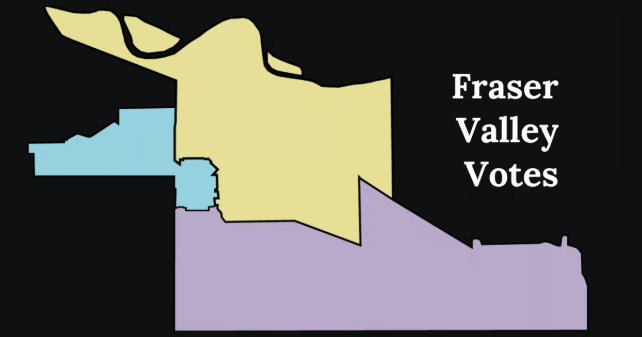B.C. homes prices forecast to dip 3.8% next year following interest rate hikes
Andrew Weichel - CTV News Vancouver • May 17, 2022

Rising interest rates will likely trigger a "modest price correction" in Canadian real estate next year, with B.C. and Ontario seeing the biggest drops, according to a new housing forecast.
Royal Bank of Canada is predicting the aggregate benchmark price will decline 2.2 per cent nationwide in 2023, down to $776,900, with a more pronounced impact in some of the country's hottest real estate markets.
Royal Bank of Canada is predicting the aggregate benchmark price will decline 2.2 per cent nationwide in 2023, down to $776,900, with a more pronounced impact in some of the country's hottest real estate markets.
"We expect downward price pressure to be more intense in Vancouver, Toronto and other pricey markets," assistant chief economist Robert Hogue wrote in RBC's latest housing outlook.
"By comparison, we expect activity and prices to be more resilient in Alberta, where local markets have more catching up to do following a prolonged slump before the pandemic."
British Columbia's aggregate price is expected to dip 3.8 per cent in 2023, down to about $1.02 million. That's the biggest drop forecast across the country, ahead of the 2.3 per cent decrease anticipated in Ontario.
RBC said the interest rate hikes already announced by the Bank of Canada – and others the bank appears "keen to proceed forcefully" with by year's end – will result in some buyers being pushed out of the market.
Those who still meet the requirements of the country's mortgage stress test will "see higher rates reduce the size of the mortgage they can get – and the price they can pay," according to the outlook.
"For households earning the median income, for example, the rise in fixed mortgage rates will shrink the maximum purchase budget by roughly 15 per cent," Hogue wrote. "That will more than reverse the increase in 2020 and early-2021 when declining rates provided substantial added budget room."
And the anticipated decrease in housing prices would do little to address affordability, coming after an expected 8.1 per cent increase that would bring the national aggregate benchmark price to $794,700 this year.
RBC is forecasting B.C.'s aggregate price will reach $1.06 million in 2022, an increase of 6.8 per cent from 2021.
Prices are expected to peak in spring before "weakening modestly" through the rest of the year, according to Hogue.
The bank estimated the chances of an actual market crash resulting from the interest rate hikes as low, and noted there are several upsides to a moderate pricing correction, including more sustainable activity and fewer price wars.
RBC said the interest rate hikes already announced by the Bank of Canada – and others the bank appears "keen to proceed forcefully" with by year's end – will result in some buyers being pushed out of the market.
Those who still meet the requirements of the country's mortgage stress test will "see higher rates reduce the size of the mortgage they can get – and the price they can pay," according to the outlook.
"For households earning the median income, for example, the rise in fixed mortgage rates will shrink the maximum purchase budget by roughly 15 per cent," Hogue wrote. "That will more than reverse the increase in 2020 and early-2021 when declining rates provided substantial added budget room."
And the anticipated decrease in housing prices would do little to address affordability, coming after an expected 8.1 per cent increase that would bring the national aggregate benchmark price to $794,700 this year.
RBC is forecasting B.C.'s aggregate price will reach $1.06 million in 2022, an increase of 6.8 per cent from 2021.
Prices are expected to peak in spring before "weakening modestly" through the rest of the year, according to Hogue.
The bank estimated the chances of an actual market crash resulting from the interest rate hikes as low, and noted there are several upsides to a moderate pricing correction, including more sustainable activity and fewer price wars.

Homebuyers in Metro Vancouver are sitting on the sidelines despite market conditions tipping in their favour, according to the latest data from the Greater Vancouver Realtors (GVR). Residential home sales in March 2025 totalled just 2,091—down 13.4 per cent from March 2024 and 36.8 per cent below the 10-year seasonal average. It marked the slowest March for sales since 2019. Active listings climbing to highest levels seen in a decade At the same time, active listings reached levels not seen in nearly a decade. New listings for detached, attached and apartment properties were up 29 per cent year-over-year to 6,455—a 15.8 per cent increase over the 10-year average. Total active listings on the MLS reached 14,546, up 37.9 per cent compared to March 2024 and 44.9 per cent above the seasonal average. “If we can set aside the political and economic uncertainty tied to the new U.S. administration for a moment, buyers in Metro Vancouver haven’t seen market conditions this favourable in years,” said Andrew Lis, GVR’s director of economics and data analytics. “Prices have eased from recent highs, mortgage rates are among the lowest we’ve seen in years, and there are more active listings on the MLS than we’ve seen in almost a decade.” Read More






